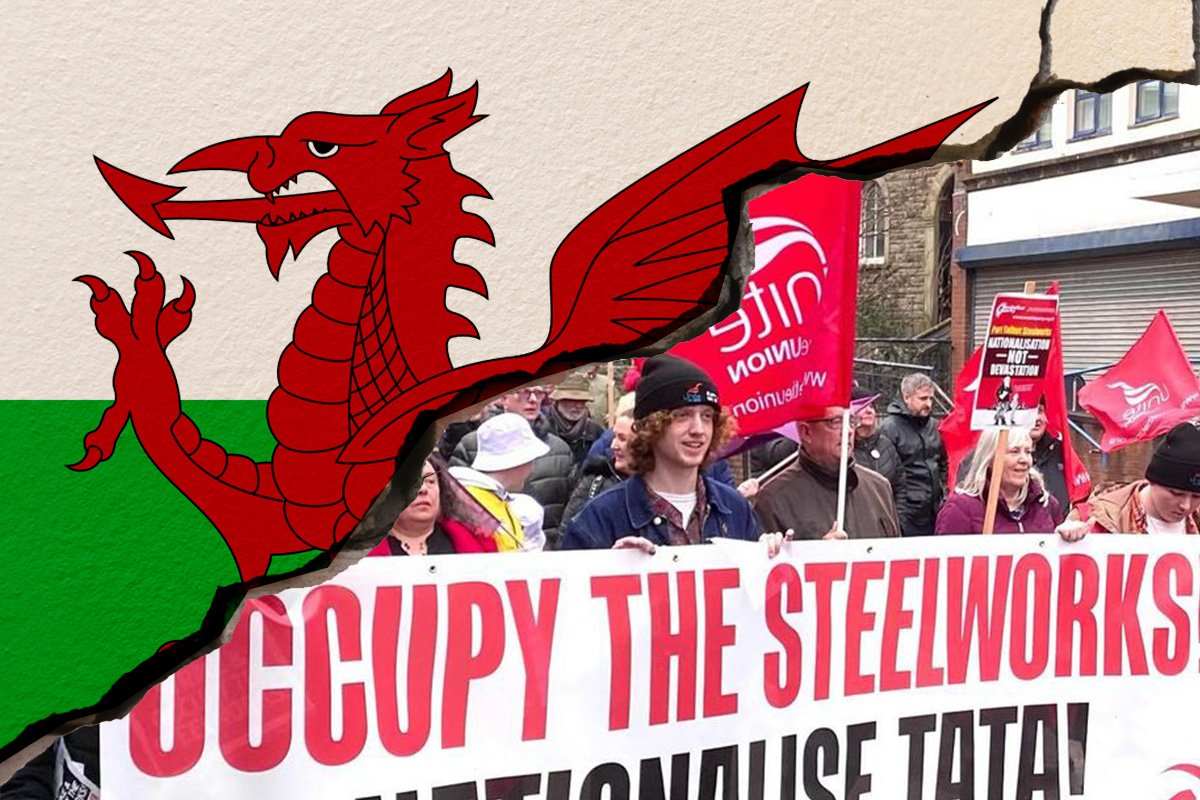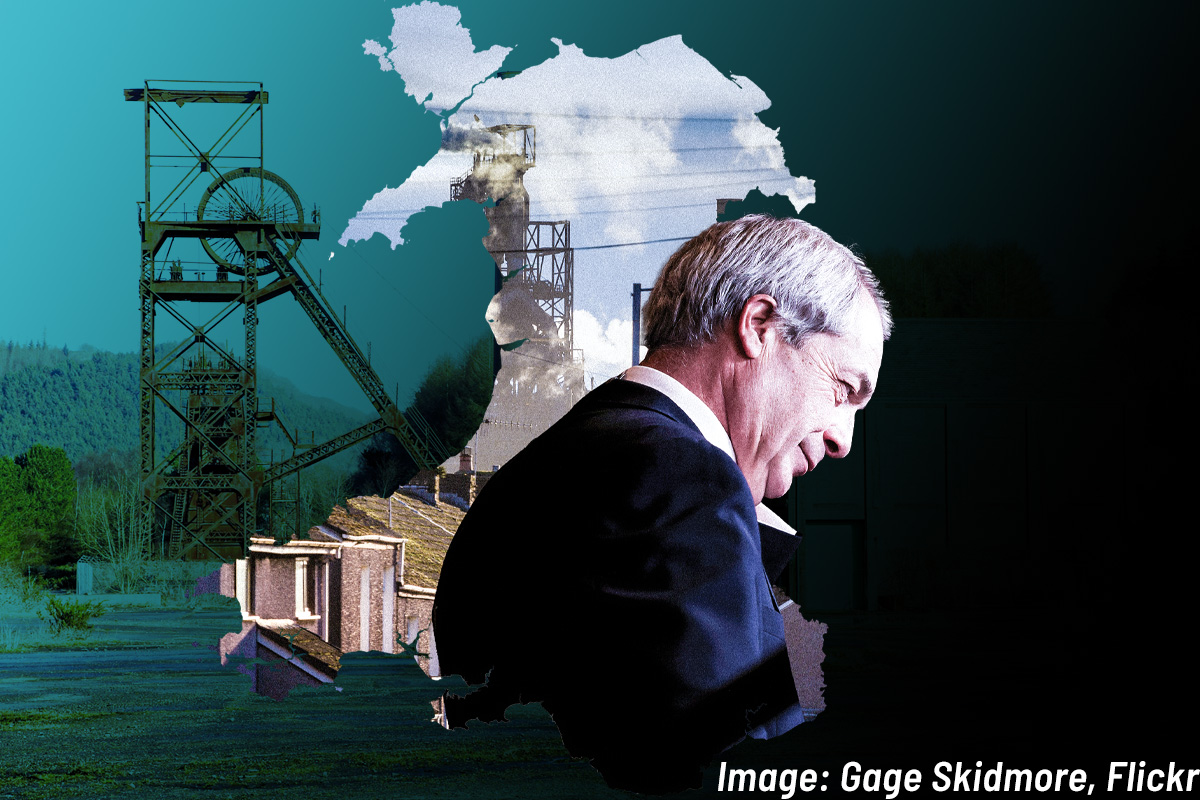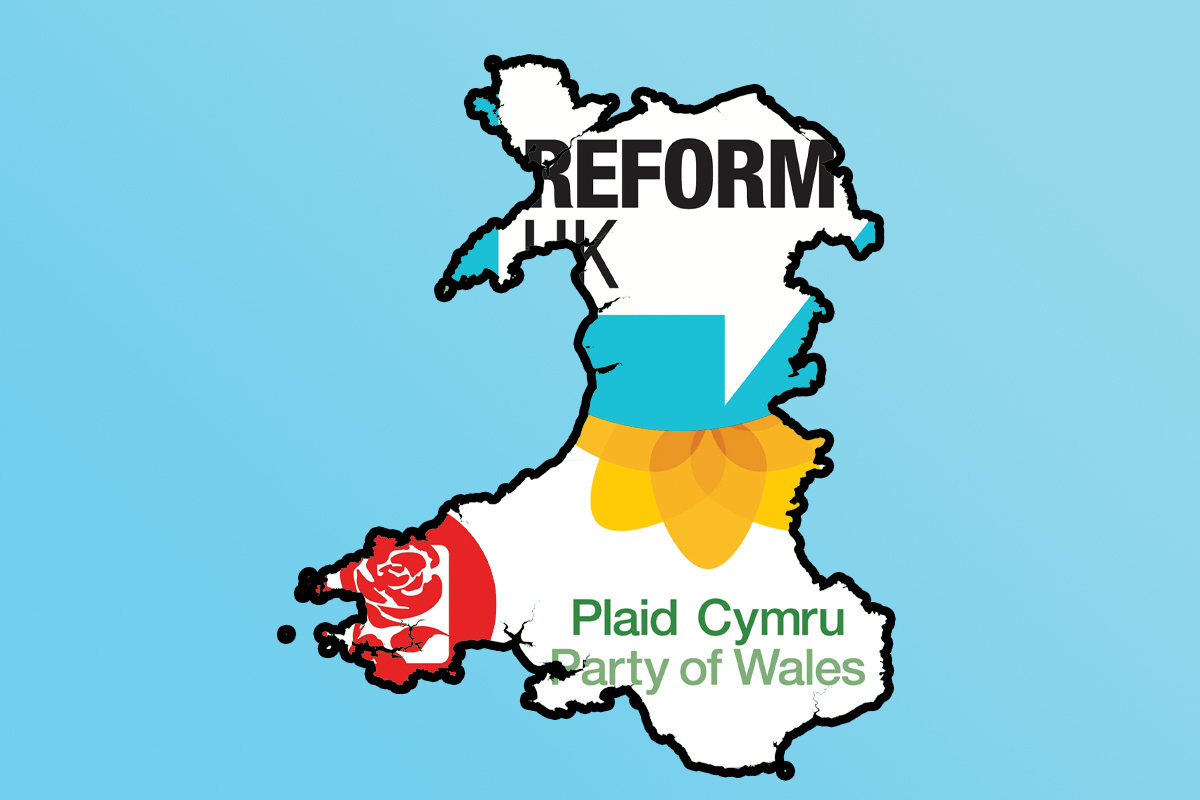The Labour Party has been in power in Wales since 1999. In theory, the position of Welsh workers should have improved significantly during this time. Instead, the real experience has been one of economic deprivation. Capitalism has driven communities into poverty and despair.
According to one study by researchers at Loughborough University, 28% of children in Wales are living in poverty. Similarly, the Bevan Foundation found that 45% of Welsh households can only afford the bare necessities of life – such as food and housing – and nothing else.
Welsh Labour
The Tory government in Westminster has inflicted misery on the working class, in Wales and everywhere. They talk about ‘levelling up’, but the whole of the UK – including those areas with devolved governments – has been devastated by their endless austerity agenda.
But what is the point of the Labour government in Wales if it cannot stand up for the working class and resist these attacks?
Rhodri Morgan – the First Minister of Wales and leader of Welsh Labour from 2000-09 – insisted that the Welsh Labour Party was different from its Blairite counterpart nationally.
He claimed that “clear red water” existed between the Labour-run Welsh government and the Westminster government; that Welsh Labour leaders had a strong commitment to social equality and community.
Decades on, however, the Welsh working class is in the same dire situation as those across Britain.
Morgan protested against the privatisation and outsourcing of the national health service, for example. In a 2007 speech, he stated that Welsh Labour were “firmly against the organisation of services on the basis of marketisation”. Yet large private companies have now sunk their teeth into the NHS in Wales – just as they have done elsewhere.
Powder keg
The working class in Wales are increasingly frustrated and discontented.
This accumulated anger and resentment – against a system that has failed them – burst to the surface last year in the Ely riots, when workers and youth took to the streets after the death of two teenage boys: 16-year-old Kyrees Sullivan and 15-year-old Harvey Evans.
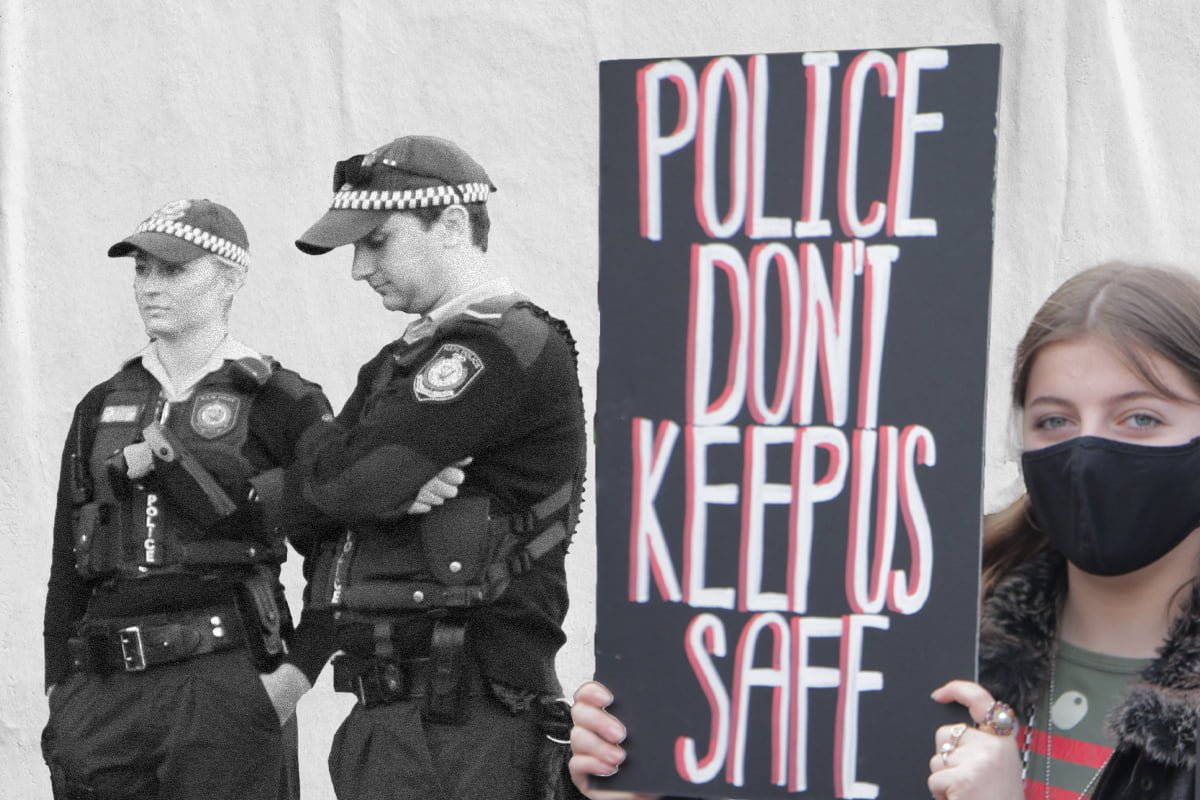
Years of neglect and poverty in working-class communities in Wales have created a powder keg, ready to explode. And the harassment of young people by the police was the spark.
The ongoing movement of the Welsh farmers – emulating similarly militant protests by their European counterparts, and provoked by greenwashed attacks from the devolved government in Cardiff – is another symptom of this same combustible mood.
Jobs massacre
Workers are looking for an alternative. But none of the major parties are providing this.
All the politicians in the Senedd, the Welsh Parliament, have cried crocodile tears at the jobs massacre planned by Tata Steel at Port Talbot, Newport, and Llanelli.
In speeches to steelworkers, Vaughan Gethin, the leading candidate to replace Welsh First Minister Mark Drakeford, has blamed the Westminster government for this catastrophe. But he has failed to commit to any action to save jobs, should he become First Minister.
We can’t rely on the Tories in Westminster to act. Instead, the Welsh government should nationalise the steelworks.
Managing capitalism
Plaid Cymru is in a cooperation agreement with the Labour Party in Wales. They similarly offer no solution to the working class.
Notwithstanding their passion for Welsh independence, they are not proposing any solutions to the material problems that workers in Wales face.
Their policies can accurately be summarised as capitalism with a Welsh stripe. And if in power, like Labour, they would simply attempt to manage capitalism – with all the same disastrous consequences for the working class that we are seeing today.
Radical traditions
Under capitalism, things will only get worse, no matter who sits in the Senedd. Instead, workers must take matters into their own hands. We have nothing to lose but our chains.
What workers in Wales – and everywhere – need is a revolution!
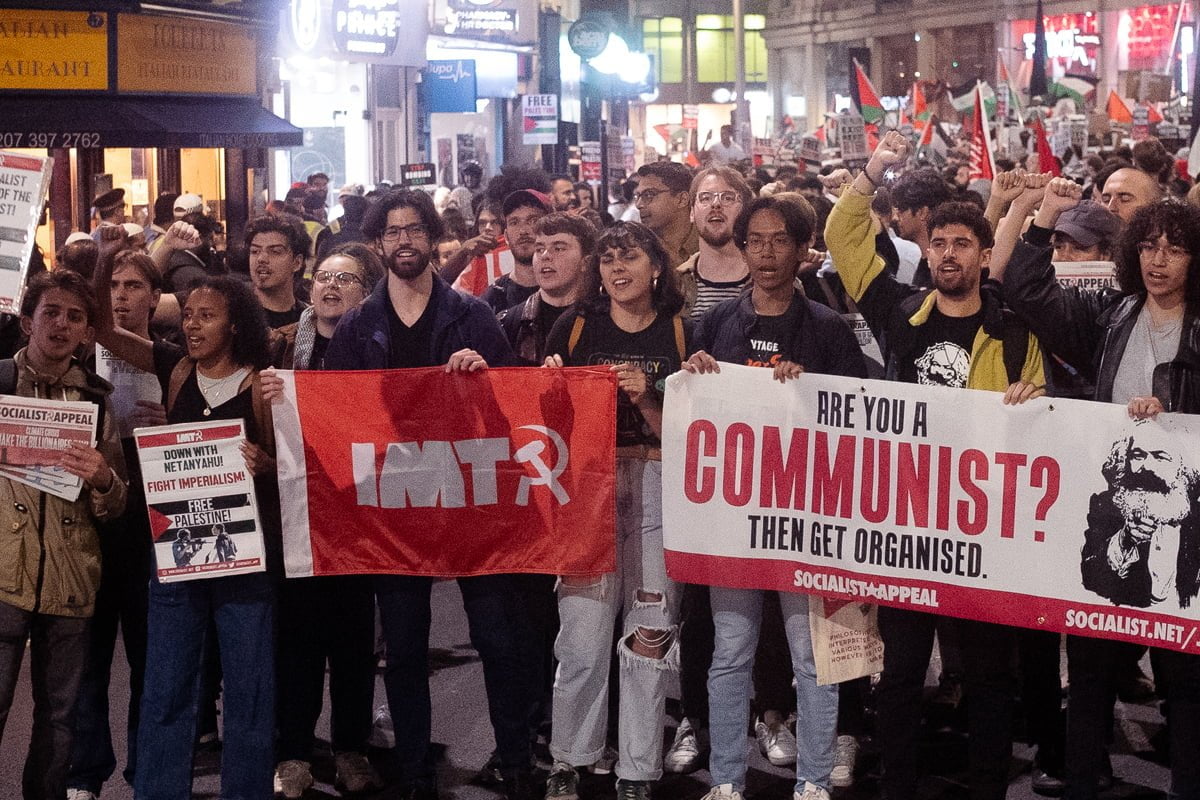
Wales has a long history of radicalism and militant workers’ movements: from the Newport Rising and the Chartists, to the Great Miners’ Strike.
It’s time to reclaim these traditions. It’s time to fight for revolution. It’s time to build the RCP.
The Welsh mining valleys’ past is Port Talbot’s tomorrow
The comparisons between the old mining villages in the Welsh valleys and Port Talbot today are obvious. The only difference is how far along they are, in terms of capitalist rot.
After the closing of the mines, the Welsh valleys have become fevered with the failures of privation, poverty, and austerity.
Cwm Taf Morgannwg’s substance misuse service saw 2,500 referrals in 2018-19, of which 700 were from Merthyr. Of these cases, alcohol accounted for 58%, and heroin and cannabis for 10% each. There has also been a rise in the number of cocaine deaths in the region.
In general, poverty is rife. The local authorities with the highest proportion of highly deprived areas (counted as being in the bottom 10% in terms of income) are Newport, Merthyr Tydfil, and Cardiff.
The old workers’ struggles of the past, meanwhile, have become marketised on the high street. You can buy miners’ lamps for a tenner in Pontypridd.
These horrible statistics will be replicated in Port Talbot if the workers do not fight back. We can’t rely on reformist leaders to step in, or we’ll be waiting forever. Only the workers themselves, united around bold demands and with militant leadership, can win.
Wyatt Holt, Rhondda Cynon Taf Communists
Readers recommend: The Way
It’s incredibly rare to watch anything on TV that gives expression to the mood of frustration and anger below the surface of society. But The Way, Michael Sheen’s latest dystopian drama about a revolution in modern-day Wales, does just that.
The series begins in Port Talbot, where just like in real life, a multinational company is attempting to close down the steelworks.
The first episode brilliantly builds up a deep sense of foreboding and tension. This is a community close to the edge, and something big is about to happen.
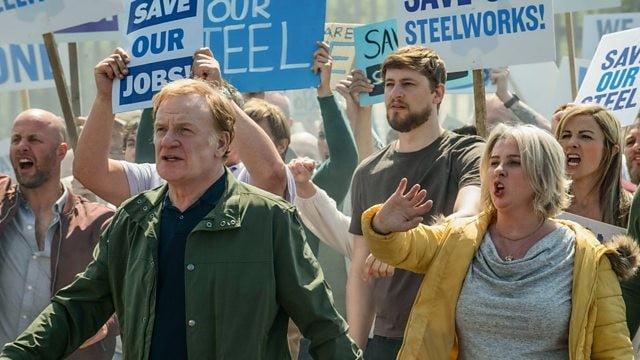
Faced with the decimation of their town, the community gathers to discuss the way forward. What follows is a truly remarkable scene, where those seeking to fight back clash with the conservatism of the site’s shop steward.
It’s not just the question of the steelworks, but the relentless crises and attacks against the working class over years that moves the town into action.
Having reached breaking point, they embark on an all-out strike, the logic of which brings them into conflict with the state.
Although it remains to be seen how the real-life struggle in Port Talbot will develop, The Way gives us a glimpse into what can happen when things reach the point of a social explosion. With the deepening crisis of British capitalism, this is only a matter of time.
James Kilby

